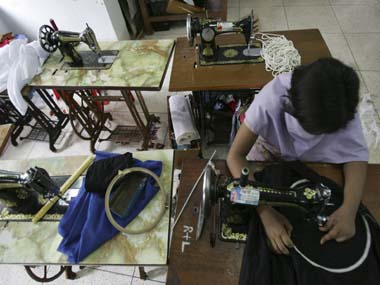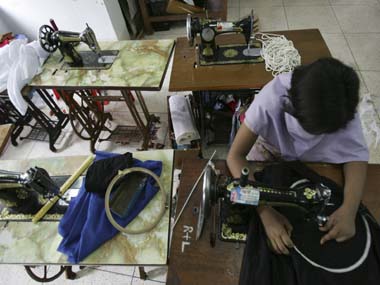I had blocked out that peculiar Indian euphemism “eve teasing” in the years I had been away from India. Recently, it came back in gruesome detail. Rinku Das, a 23-year-old call centre employee in Kolkata, was returning by local train to her home in Barasat on the city’s outskirts. It was after dark, and as usual her 16-year-old brother, Rajib, was waiting with his bicycle to escort her home. A group of drunk men began to pass lewd comments. Rinku asked her brother to go faster. But they were not quick enough. One of the men caught up with them and grabbed the handlebars. He pulled Rinku off the bike and poured alcohol all over her. The brother tried to stop them but they beat him up. “Oh are you a big shot gangster now?” they yelled. “Show us your gun then.” That’s when the story takes a horrific turn. Rinku ran screaming for help to the District Magistrate’s bungalow nearby. The armed guards positioned at the gate refused to leave their posts. They gave her the phone number of the police station instead. By the time Rinku returned, a passerby in a cycle rickshaw had picked up her brother who lay bleeding by the side of the road. He died the next morning. The papers ran headlines calling the incident ‘eve teasing’. The phrase sounds coy, but it seems to cover everything from street-side flirtation in a Bollywood film to acid attack on women.
[caption id=“attachment_166” align=“alignleft” width=“380” caption=“It’s unsafe for women out there. Reuters. “]
 [/caption] In this particular story, the real eve teasing began after the ‘eve teasing’. “I’ve heard the allegation, but after conducting an inquiry, I found it was not true,” said the District Magistrate whose guards had turned Rinku away. “This woman is a divorcee; she used to go to Kolkata for work every day, and she used to return by around 11 to 11:30 every night,” the state’s Home Secretary told reporters. The Home Secretary would deny it, but evident in his comments is a nagging discomfort with working women. The image that sticks with me about the Rinku Das story is of a young woman returning from work faced with a group of men – probably unemployed – who spend their days getting high on cheap booze and cough syrup. When I was a child growing up in India, few of my friends’ mothers worked. I recall telling my mother, “Don’t go to work. Or you won’t be home when I come back from school.” My mother remembers that fondly. I remember it with chagrin. Now I know few young urban women who do not work. In 1981, the proportion of women in the formal workforce in India was 19.7 percent. By 2001, the figure had risen to 25.7 percent. The International Labor Organization (ILO) estimates that 34.2 percent of Indian women are now in the workforce, though that still trails China’s 68.9 percent. In the information technology industry, by some estimates women make up over 40 percent of the workforce. The tension over working women, travelling in crowded buses and auto rickshaws by themselves flares up over and over again as if the women are challenging men by encroaching into their territory— the open street. According to the National Crime Records Bureau, violence against women is the fastest-growing crime in India. The government has deployed anti-roadside ‘Romeo squads’ and set up anti–eve-teasing cells in police stations but has not been able to achieve much. In the wake of the newest tragedy, the newspapers are full of lurid stories about the ‘tease and hit trail’. A young private tutor was beaten up when he tried to take on two youths passing lewd comments about one of his students, a 14-year-old girl. Two sisters on a scooter were manhandled by around 30 men from a neighbourhood club in the same city where Rajib was killed, barely 24 hours before his death. It’s hard to tell how long the outrage will last. With elections around the corner, political parties are trying to capitalise on the tragedy. Buddhadeb Bhattacharya, the embattled chief minister of West Bengal went to visit the bereaved family but was shown black flags in protest. Members of the Trinamool Congress, the opposition party, showed up with a flower-bedecked hearse with their own party flags. The family turned it back. The shadow of the tragedy of Rinku and Rajib Das touches our house too. Our cook, a young woman, lives in the same small town where the perpetrators accosted Rinku. A single mother separated from her husband, she lives alone, her little boy in a boarding school. She, too, takes the local train to work in Kolkata every morning. At the end of the day, she gets off at the same station and takes the same ‘tease and hit trail’ home. “Everyone knows it’s a bad road,” she says. “But what can you do? You have to work.”
[/caption] In this particular story, the real eve teasing began after the ‘eve teasing’. “I’ve heard the allegation, but after conducting an inquiry, I found it was not true,” said the District Magistrate whose guards had turned Rinku away. “This woman is a divorcee; she used to go to Kolkata for work every day, and she used to return by around 11 to 11:30 every night,” the state’s Home Secretary told reporters. The Home Secretary would deny it, but evident in his comments is a nagging discomfort with working women. The image that sticks with me about the Rinku Das story is of a young woman returning from work faced with a group of men – probably unemployed – who spend their days getting high on cheap booze and cough syrup. When I was a child growing up in India, few of my friends’ mothers worked. I recall telling my mother, “Don’t go to work. Or you won’t be home when I come back from school.” My mother remembers that fondly. I remember it with chagrin. Now I know few young urban women who do not work. In 1981, the proportion of women in the formal workforce in India was 19.7 percent. By 2001, the figure had risen to 25.7 percent. The International Labor Organization (ILO) estimates that 34.2 percent of Indian women are now in the workforce, though that still trails China’s 68.9 percent. In the information technology industry, by some estimates women make up over 40 percent of the workforce. The tension over working women, travelling in crowded buses and auto rickshaws by themselves flares up over and over again as if the women are challenging men by encroaching into their territory— the open street. According to the National Crime Records Bureau, violence against women is the fastest-growing crime in India. The government has deployed anti-roadside ‘Romeo squads’ and set up anti–eve-teasing cells in police stations but has not been able to achieve much. In the wake of the newest tragedy, the newspapers are full of lurid stories about the ‘tease and hit trail’. A young private tutor was beaten up when he tried to take on two youths passing lewd comments about one of his students, a 14-year-old girl. Two sisters on a scooter were manhandled by around 30 men from a neighbourhood club in the same city where Rajib was killed, barely 24 hours before his death. It’s hard to tell how long the outrage will last. With elections around the corner, political parties are trying to capitalise on the tragedy. Buddhadeb Bhattacharya, the embattled chief minister of West Bengal went to visit the bereaved family but was shown black flags in protest. Members of the Trinamool Congress, the opposition party, showed up with a flower-bedecked hearse with their own party flags. The family turned it back. The shadow of the tragedy of Rinku and Rajib Das touches our house too. Our cook, a young woman, lives in the same small town where the perpetrators accosted Rinku. A single mother separated from her husband, she lives alone, her little boy in a boarding school. She, too, takes the local train to work in Kolkata every morning. At the end of the day, she gets off at the same station and takes the same ‘tease and hit trail’ home. “Everyone knows it’s a bad road,” she says. “But what can you do? You have to work.”
)